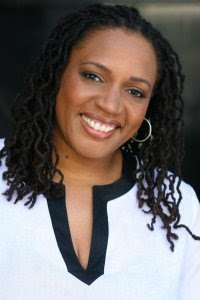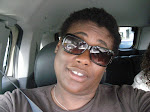
Kellie Griffin has a great laugh and a thing for dog parks. Kellie is also a comedy writer. In the business for nine years, she has worked on The Parkers and recently as head writer on House of Payne - but don’t hold that against her.
Kellie’s newest project, a half hour, multi camera sitcom, based on a real life experience, is one that puts her in the “creator” seat. I can’t exactly tell you what the show is about because I’ve signed a confidentiality agreement and I am not in the mood to be sued. But after spending a week with Kellie and her team of writers, I can tell you the story is funny, clever, and takes a lot of smart folks to pull off.
Kellie was gracious enough to let me sit in on a few writing sessions as she raced toward a deadline to complete five new scripts for her executive producer.
Anatomy of a Writer's Room
First, let me say that comedy writing is an endurance sport. By the end of a long day you are wrung out and punch drunk. Kellie and her team of five writers spend a minimum of six hours hammering out storylines, punch lines, and logic issues. As head writer/creator, she is the captain of the ship and responsible for encouraging fresh ideas, positive energy, and producing a finished product.
Generally each writer is assigned a script after the team has decided on each story and beat out all the scenes that should appear in the outline. Once the assigned writer has written the script it is brought back into the writer’s room and the staff deconstructs each scene and assist in rewriting.
Kellie says that new writers who are exposed to this team approach can struggle during this rewrite free-for-all. But she encourages them to trust the process and know that the team is only trying to create the best possible story. Because it is a collaborative process involving writers, studio heads, network heads, and actors sometimes the script you submitted is not exactly the same one that is shot — so don’t be sensitive. Besides in the end only your name will appear on the final product.
When Kellie starts pulling together a stellar team, diversity is imperative. Of first order is bringing together folks who will gel. When you are spending that much time together it is best that the right personalities share the same space. It is also important to have writers from various walks of life: married, single, film school graduates, self taught, Black, Asian, men, women. Head writers are also striving for balance when it comes to funny and finesse. Pairing writers who can fire off a joke every thirty seconds with writers who can track down the right flow to the story makes for good television.
Once you get everyone into the writers room, there are do’s and don’ts. Pitching (suggesting an idea for the script) is encouraged while trying to dominate the entire process is not. Be on time and stay off your cell phone. Be respectful of other writers’ work and don’t take yourself too seriously. It is all about creating a fun and productive space.
Anatomy of a Comedy Script
The average comedy script is made up of two acts, 8 scenes, a teaser, a tag and approximately 38 pages. Each page equals about 30 seconds of screen time, which produces a show that runs a little under 20 minutes. Commercials make up the difference, although Kellie says air time for television shows is being shortened to make room for more commercials. The first 4-5 pages is the teaser, which sets up the A/B story that will run through the show for the remainder. The first act sets up all the characters and ends with a cliff hanger at the act break(approximately page 20). The second act is riddled with conflict until about page 37, where a happy ending magically appears, and the show is wrapped with a tag on page 38.
In designing these scripts, efficiency is the key. Once the writers get through a massive game of word association to flesh out backstories and depth for the characters, they are always mindful that there are no throwaway lines or fillers. Scenes are tightly packed, driving toward a solution, button, or joke. The primary rule seems to be "end on a joke." And just because the joke made you laugh doesn’t mean it will survive the rewrite. Funny can be trumped by hilarious in a flash.
The Finish Line
Once the scripts are written and rewritten the team takes one more pass before releasing them. It appears the objective is to cut any “fat” that might slow down the story or jokes.
The danger here is the writers might be tempted to go back into the story and try to “make it better.” The head writer usually steps in and makes sure only the housekeeping gets taken care of and then the team is on to the next script (and the process starts all over again).
And that is the life of a comedy writer working on weekly show.
Kellie's Tips for new writers trying to break in
1. Sit in a writer's room. There is no classroom or book education that can replace that experience.
2. Be a sponge — talk to other writers, take classes and seminars, read articles and books on writing and the business of writing.
3. Watch a lot of television. You will need to write a spec script to get on a show you will have to watch enough of that particular show to get a sense of the “voice” and character arcs.
4. Keep writing — writers write. If you are not writing, you are not a writer. (Or at the very least you are not adding to the portfolio which proves that you are serious about writing!)
Michelle






